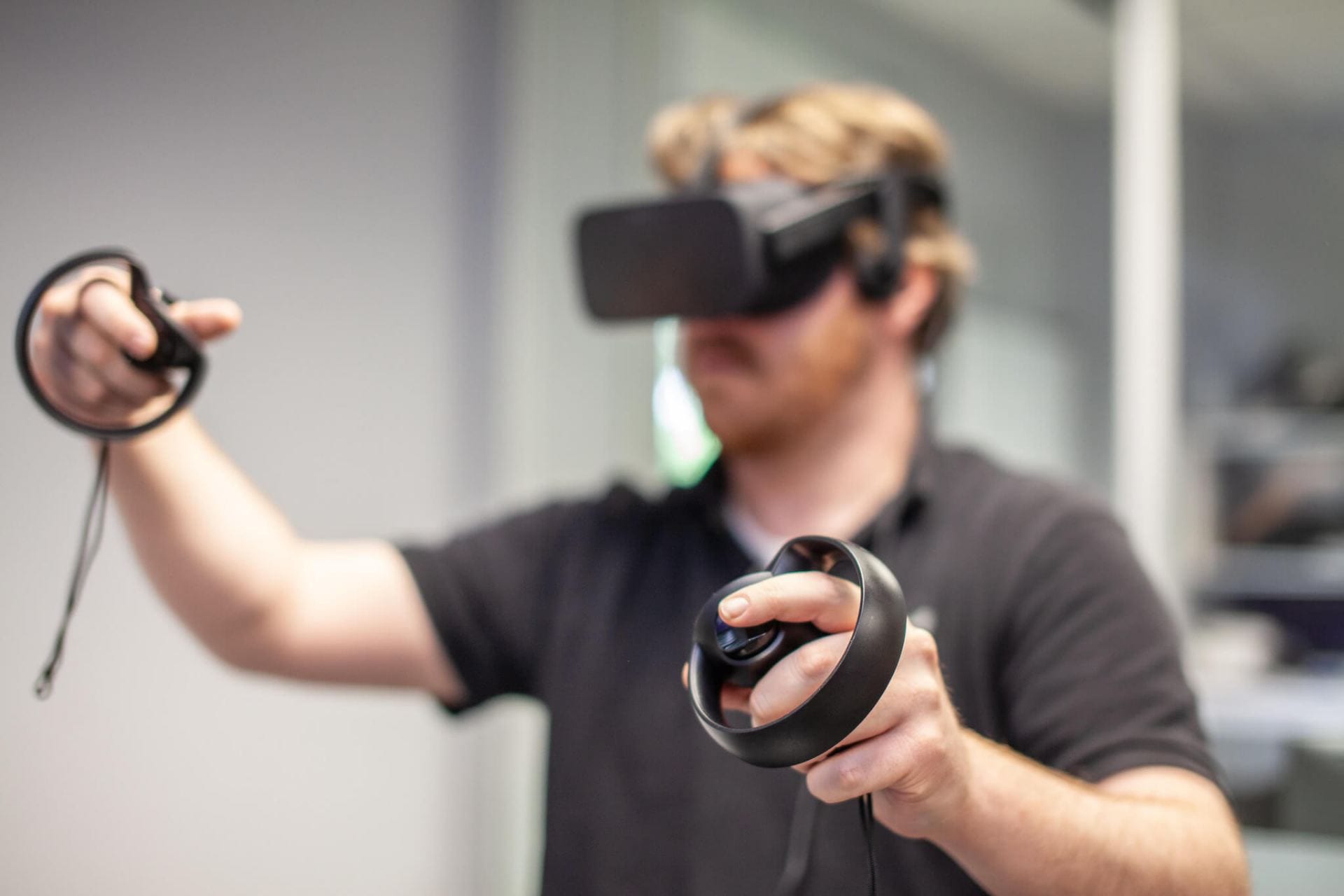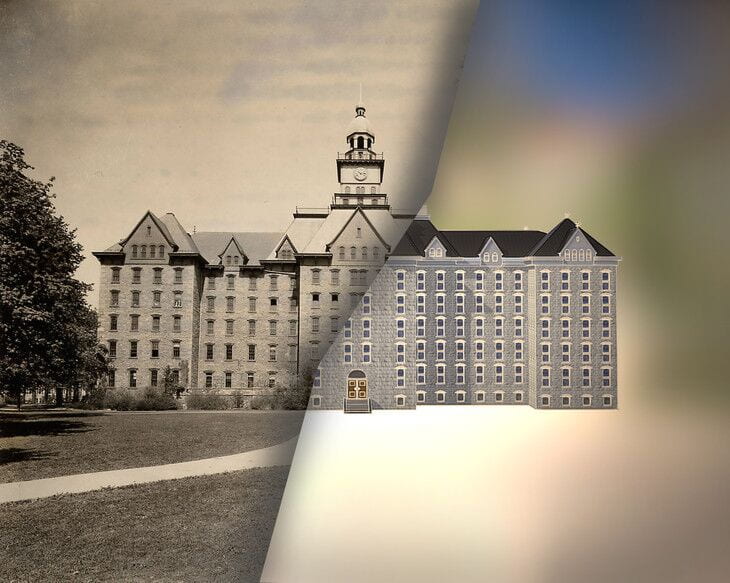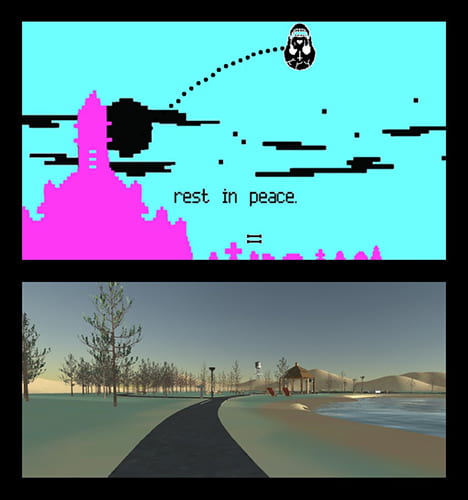Courses
Exploring immersive technology's impact on educational goalsCIE both curates, supports, and designs courses related to xR at Penn State. The Center’s staff will work with instructors to integrate immersive technology that best supports and enhances the classroom experience.

AE 597: Virtual Facility Prototyping
This course is for students to learn how to design and develop interactive virtual prototypes of facility information to improve decision-making on projects in the Construction Industry. To meet this goal students will:
- Investigate the use of virtual prototyping on architectural and civil engineering projects;
- Review current research and applications in virtual reality, augmented reality, mixed reality, virtual worlds, and interactive workspaces as they apply to the built environment; and
- Participate in seminars and demonstrations of the latest technologies for developing and visualizing building design and construction information.

GEOG 107N: Immersive Technologies - Transforming Society Through Digital Innovation
Although envisioned and available for several decades, technological challenges of the past made their application in education, research, and everyday life a rather specialized endeavor, restricted to research labs rather than being open to communities. This course provides students with the basics of what xR technologies are and their history, and introduces students to core concepts such as immersion, presence, and reality-trade off. Furthermore, the course will provide students with hands-on experiences to create their own xR experiences focusing on entry-level technologies.

GEOG 497: 3D Modeling and Virtual Reality
3D Modeling and VR for the Geospatial Sciences is an introductory-level science course that introduces students to emerging topics at the interface of concepts and tools that capture/sense environmental information (e.g., LiDAR) and concepts/tools that allow for an immersive access to geospatial information (e.g., HTC Vive). The course offers a high-level perspective on the major challenges and opportunities facing the development of current 3D technologies, differences between classic modeling and procedural rule-based modeling, the development of VR technologies, the role of game engines in the geospatial sciences.

GEOG 560: Place - A Transdisciplinary Immersive Journey
This mixed-format seminar, jointly organized by Geography and Architecture/Landscape Architecture, centers on the possibilities that immersive virtual reality systems offers for interdisciplinary research. This course explores new research topics in geographic information science problems and theory, including GIS, cartography, remote sensing, spatial analysis, and modeling.
DART 315: GAME STUDIO
This course concentrates on creating, authoring and critically evaluating interactive games as vehicles for self-expression. It focuses on creative work that is exploratory and experimental and engage students in research methods to advance their skills and critical competence in new media. This course explores the nature and potential of game design through lectures, readings, demonstrations, studio practice, and critiques. It culminates in a final interactive game authored project.
- This course uses the Unity3d authoring environment.

